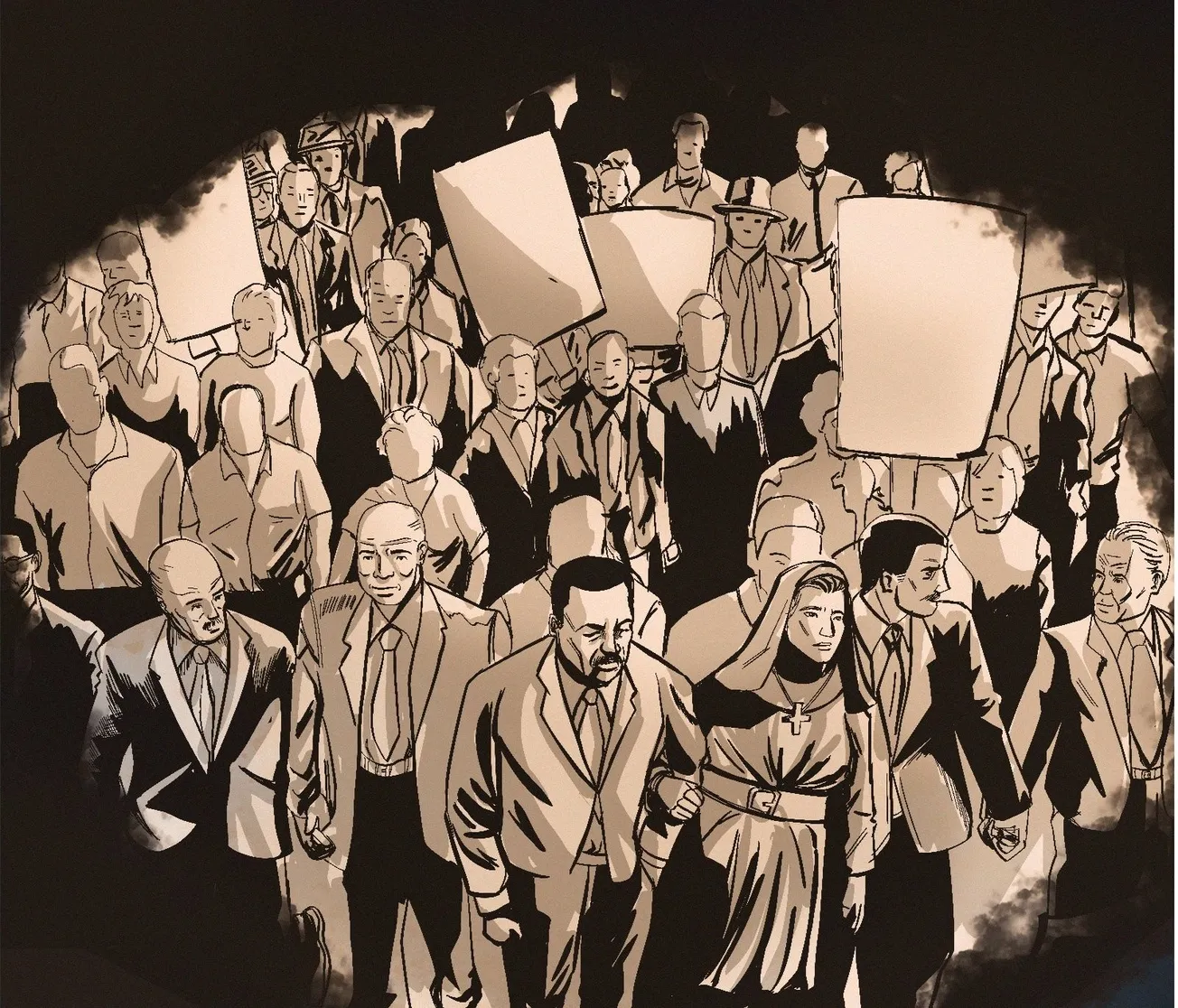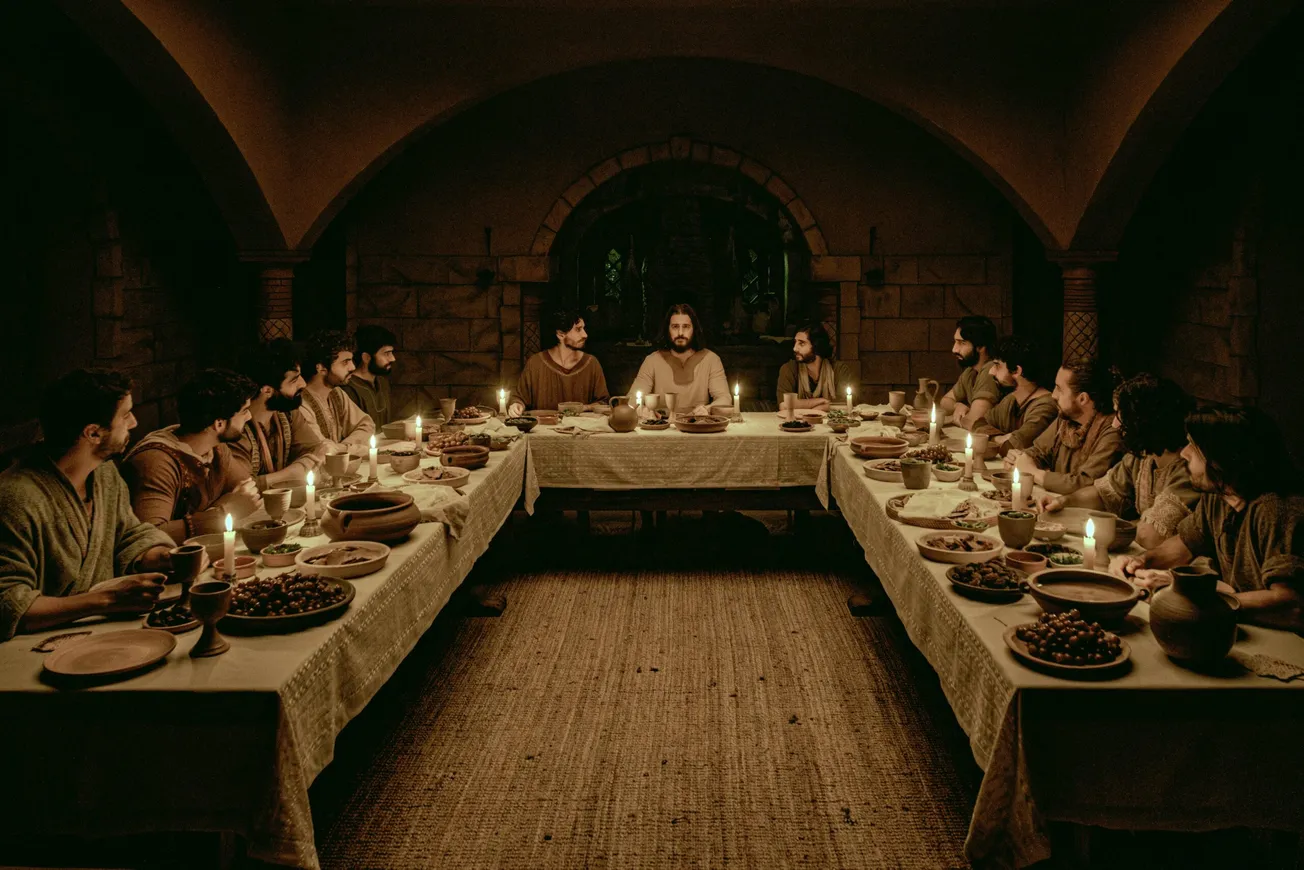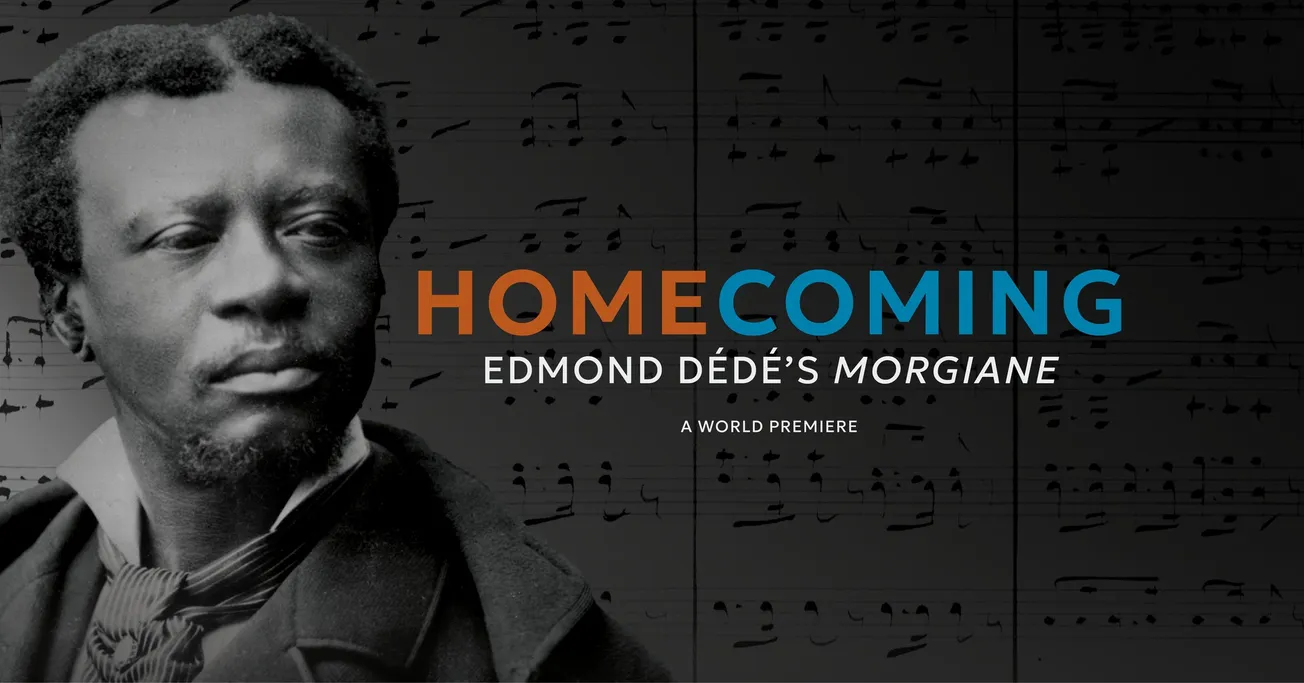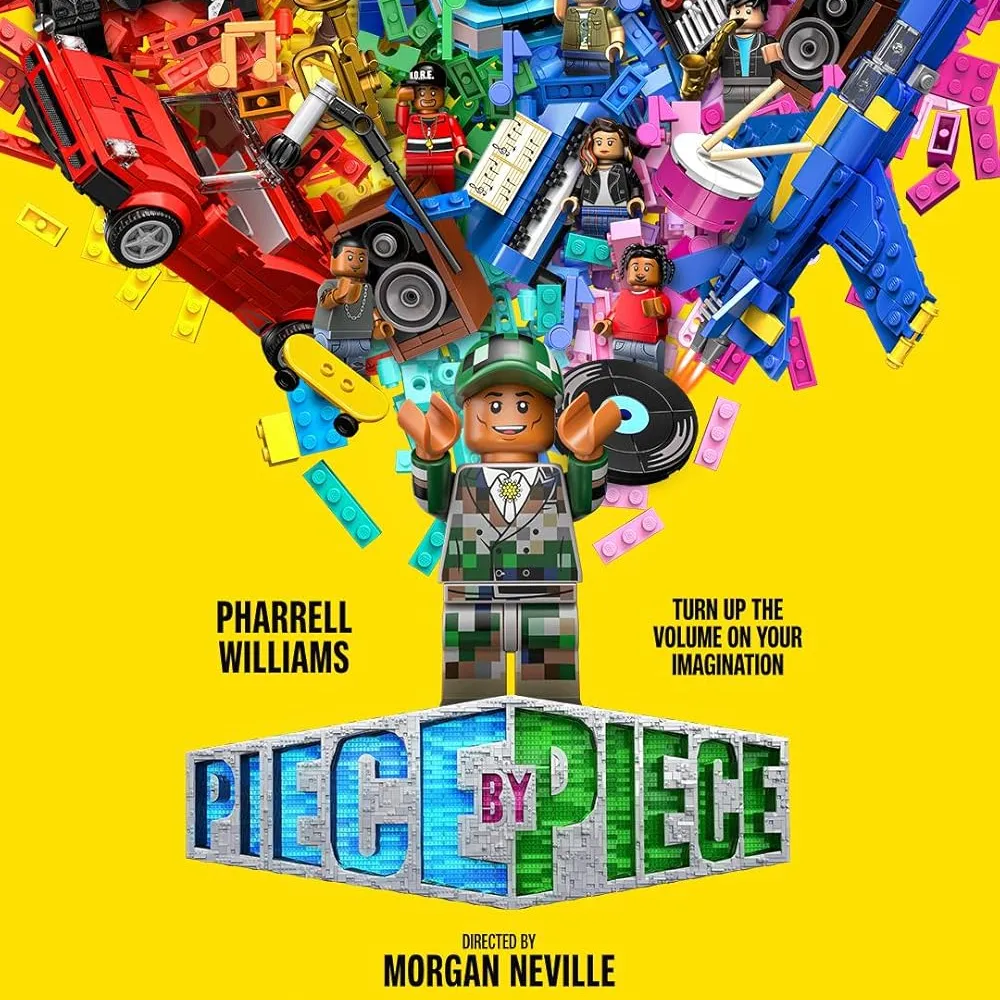A free Catholic webcomic series is telling true stories of racial justice, White Catholic violence, and the pioneering work of a Black Catholic judge in the Deep South.
“Bad Catholics, Good Trouble” is the brainchild of Maryland-based Dr. Matthew Cressler, formerly a religion professor at the College of Charleston and now chief of staff at the Corporation for Public Interest Technology. A self-professed “lover of comics,” he first had the idea for a comic series on Catholics and race—his academic specialty—after creating a shorter work with artist Marcus Jimenez.
“I had gotten tenure and was on sabbatical and was kind of going where the spirit was taking me and I happened to have a friend from undergrad at Saint Bonaventure who was getting into the indie comic world,” Cressler told BCM. “I was talking with him and then following him and his new company on Twitter and then following a whole host of Indie comic creators on social media and Marcus was one of them.”
Cressler says one thing led to another, and soon he had written a one-page story that was thereafter accompanied by Jimenez’s illustrations.
“I was letting my kind of creative side kind of bloom in ways that I hadn't really had space to do in a while,” Cressler said. “That was the kind of light bulb going off, because it was kind of cool doing it, but then when he produced it and I held it in my hands and looked at it on my phone, I was like, ‘My God, I can do this.’”
BAD CATHOLICS, GOOD TROUBLE is online!!! It brings true stories re: Catholic racism and antiracism to life in webcomics suitable for all ages! But wait, there's more! It comes w/ ready made teaching & learning materials (w/ primary & secondary sources)!🥳https://t.co/8EttPMmFLz
— Matthew J. Cressler (@mjcressler.bsky.social) (@mjcressler) August 31, 2023
At the time, Cressler was finishing his acclaimed book, “Authentically Black and Truly Catholic: The Rise of Black Catholicism in the Great Migration,” which probes the intersection of the Black Catholic and Black Power movements in Chicago in the late 20th century.
While that work was in large part an academic product for adults, he decided to turn the story of a White Franciscan nun in Chicago, Sr Angelica Schultz, into a full-fledged webcomic that could reach a younger generation.
It is set around the time Dr. Martin Luther King spent living in the slums of the Windy City during the Chicago Freedom Movement, during which he gained allies like Schultz in the struggle and demonstrations, as well as many Catholic enemies.
“Some Catholics won’t address injustice in their neighborhoods, in their parishes, or in the Church. Some even fight to keep oppressive structures in place,” reads a description of the new comic series. “Other Catholics have taken feet to the streets and bricks to the head in their struggles for social justice.”
Such violence is narrated in the first issue of “Bad Catholics, Good Trouble,” coauthored with Schulz’s niece and grand-niece, Drs. Judith and Jennifer Daubenmier, and supported with grant funding from the Henry Luce Foundation and the American Academy of Religion.
“I wondered what piece of that would translate really well to the kind of action-oriented visual medium of a comic book, and the story of a sister marching and getting hit in the head by a brick just—I mean, it was a dramatic moment in history,” Cressler said of the issue, titled “Chicago 1966” and released in four chapters last fall.
“That tension between the White Catholic exceptions to the rule—the very small handful of White Catholics who actively engaged in racial justice work at the time—and the much larger groups of White Catholics who either tacitly supported or explicitly engaged in violent resistance, that was the kind of story I wanted to tell.”
Jimenez’s art brings a special flair to the operation, evoking images of the superheroes seen in traditional comics, though with very much earthly protagonists as the focus. The web layout created by interdisciplinary scholar Dr. Megan Goodwin adds an additional layer of immersion. Goodwin serves as a media and tech consultant for the Crossroads Project at Princeton University, in which Cressler is a 2023-24 fellow with issue #2 of the webcomic series.
The first issue is already receiving praise from scholars in the field of race and religion, including Dr. James Howard Hill Jr. at Brown University.
“This groundbreaking webcomic uncovers suppressed historical connections, provokes critical reflection, and disrupts established notions of conceptual methodology within the academic study of religion,” he wrote last year.
“Brace yourself for a polysemic experience that captures the intricate tapestry of U.S. society, shedding light on the profound intersections of art, storytelling, religion, race, and the lived experiences of those conscripted into a haunting drama whose consequences reverberate far beyond the shadow of the original actors involved."
The second issue of the series, due for release in the coming months, covers retired judge Arthur C. McFarland, whom Cressler met during his time in South Carolina. Born in the late 1940s on Charleston’s East Side, he converted to Catholicism as a child and helped desegregate Bishop England High School, from which he graduated in 1966. He later helped bring the nationwide fervor of Black student activism to the University of Notre Dame, where he received his degree in 1970 before studying law at the University of Virginia.
After serving with the NAACP Legal Defense Fund in New York, McFarland ascended in the legal field to serve as municipal court judge for the city of Charleston for more than three decades and as the city’s chief judge for 28 years. He also served as Supreme Knight of the Knights of Peter Claver.
Cressler based his manuscript for the upcoming comic on nearly five hours of interviews with McFarland, who was all too willing to participate.
“He didn't take a lot of convincing,” said Cressler. “Most people as humble as Arthur would be a little uncomfortable with someone being like, ‘I want to tell the story of your life and I wanted to be a comic book,’ but he was game.”
COMING SOON! BAD CATHOLICS, GOOD TROUBLE #2!
— Matthew J. Cressler (@mjcressler.bsky.social) (@mjcressler) April 3, 2024
This one spans decades & genres to tell the life story of my beloved friend & true inspiration Judge Arthur McFarland. Story by Arthur & me, artwork by @Martacuss, web design by @mpgPhD, made possible by @XroadProj @HLuceFdn 🙏🙏🤘 pic.twitter.com/pHq0u6Fl31
Cressler says the new chapters are just the start of the “Bad Catholics” project, with plans for issues on fan-submitted topics covering American Catholics in the flight for justice. There is even a chance that, with the right partners, physical editions could be in the future.
“The second story is written in a more traditional comic book page format, which actually I think translates well To online media. I've looked at it on my phone and on the computer, and it looks great, but the benefit is that it would more easily translate to a print version,” said Cressler.
“A dream I have is that if we don't have just one story but we have two or three or four or five, we might get to a point where we could start producing physical copies either as a kind of anthologized kind of volume or as a series of single issues.”
In the meantime, Cressler is seeking more stories worth telling in the webcomic format and the BCGT website currently has a contact form where those interested can get the conversion started to reach a wide audience not limited to academia.
“Anybody who's around young people knows that one of the biggest ways they consume the written word is in the form of a webcomic or graphic novel,” Cressler said, noting that not only the medium is in need of a shift but the message as well.
“Stories play such a huge part in how we imagine who we are and how we understand the institutions and communities that we're a part of. I have long had, and still do have, the sense that we need to be telling different stories about Catholicism in this place called the United States and in the world ”
Nate Tinner-Williams is co-founder and editor of Black Catholic Messenger.










